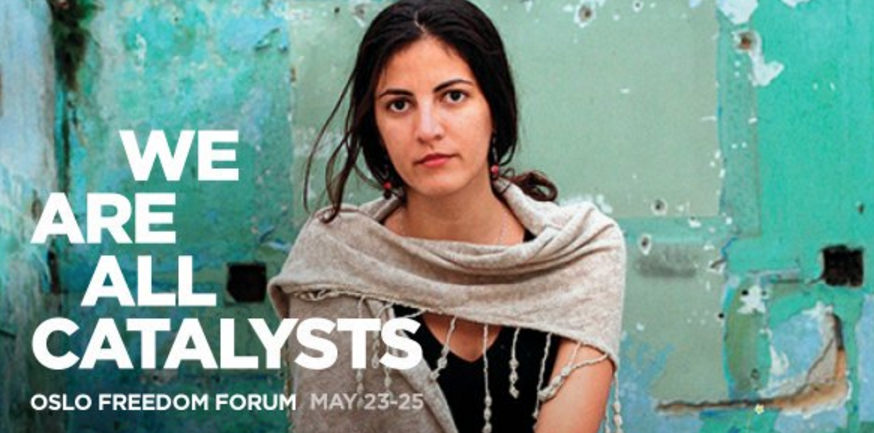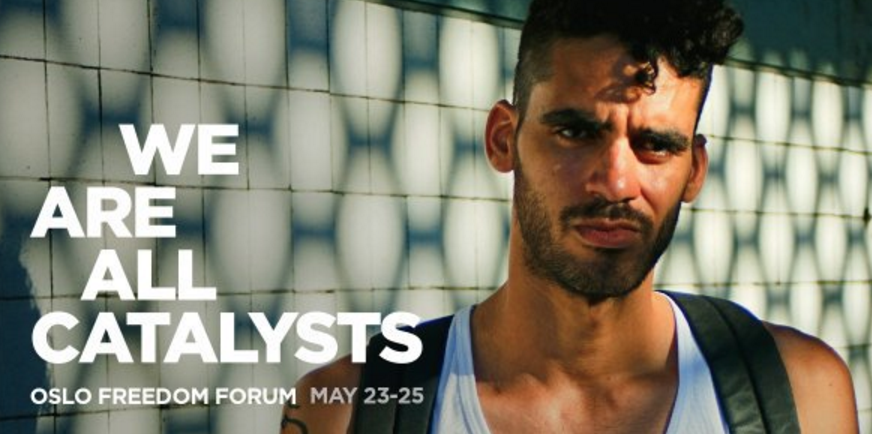
![]() EFE (via 14ymedio), María Tejero Martín, Oslo, 23 May 2016 — Cuban opposition member Rosa María Payá said Monday ,in an interview with EFE, that the “totalitarianism” of the government led by Raul Castro “has not broken” despite the open contact with the United States and the European Union (EU), and so she asked that these approaches be used to achieve “concrete progress.”
EFE (via 14ymedio), María Tejero Martín, Oslo, 23 May 2016 — Cuban opposition member Rosa María Payá said Monday ,in an interview with EFE, that the “totalitarianism” of the government led by Raul Castro “has not broken” despite the open contact with the United States and the European Union (EU), and so she asked that these approaches be used to achieve “concrete progress.”
“Rapprochement with Cuba is very good, but it depends on how and how it is sold. It also has negative consequences, such as the rest of the world perceiving an internal process of openings toward democracy, and this has not occurred,” said Payá in the Norwegian capital, where she has come to participate in the Oslo Freedom Forum (OFF).
The dissident said that “totalitarianism has not been broken” despite the “legitimacy” with which it might have re-clothed itself after the visits of personalities such as US President Barack Obama, the high representative of the EU for Foreign Policy, Federica Mogherini, Pope Francis or the Rolling Stones.
Payá, daughter of the prominent opposition leader Oswaldo Payá, who died in 2012 in a car crash which his daughter blames on the Cuban regime, believes that the international community has an “opportunity to pressure the regime for this change toward freedom.”
Payá criticized the “excuses that can be cynical, but are invoked as pragmatic” which are used as an argument to initiate dialogue with Cuba placing special attention on economic relations and relegating to the background demands for human rights and freedom.
“People say things like if we negotiated with China, why not with the Cuban regime. Under this line of thinking, why not with North Korea?” she said.
We regards to negotiations between Brussels and Havana, she considers it “worrying” that no light has been shined on the text that serves as a basis for contacts between the two parties and warned that it is not enough to simply include “a mention of human rights, because tyrannies have already learned to deal with these mentions.”
“The support has to be concrete, specific and on measurable issues. Not only speeches in support of democracy, of human rights,” she said, calling for support for the holding of a plebiscite on the island, access to communications media and information, and the release of political prisoners.
“Totalitarianism, which has not been broken, is broken when the ability to decide does not reside in the same group of generals. At that moment the transition will have begun, which won’t happen in a single day. We cannot pretend this is happening,” she said, in a message she directed to “the international community,” from whom she asked for “support.”
” Cubans are human beings just like everyone else, like Spaniards or Belgians. We did not endure five decades in order to have Airbnb, but rather all out rights (…), having more Americans to travel to the island is not enough, it is a racist approach to think so,” she claimed.
To Payá, inaction may also affect the international community itself and democratic countries.
In this regard she pointed to how the situation in Venezuela has been evolving under the leadership of Hugo Chavez and president Nicolas maduro, but also the ideas that have come from “political parties in Spain.”
Looking ahead to the upcoming Spanish elections, Payá stressed that “the Spanish people are sovereign, so it is up to them to decide,” although she expressed her concern for “the influence of the totalitarian regime in Havana and the Chavista regime which is concerned with undermining Latin America and exporting its ideas to Europe.”
About the rise of anti-democratic positions, the Cuban opponent once again called on democratic countries to act.
In terms of rights, “Cubans were already in the worst situation ten years ago, but now the rest of the world is worse off as well,” she warned.

